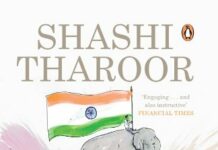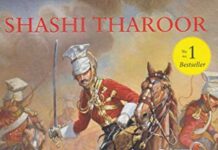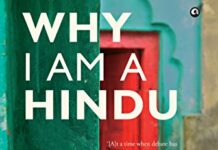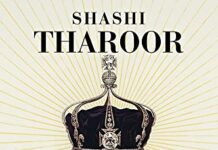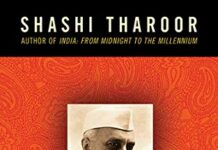
Ebook Info
- Published: 2015
- Number of pages: 473 pages
- Format: PDF
- File Size: 3.04 MB
- Authors: Shashi Tharoor
Description
This has been a time of unprecedented change in the country. The transformation of Indias politics, economy, foreign policy, media, civil rights, governance and a myriad other aspects of our society and government has been swift and disruptive, sometimes brutally so. Narendra Modi, the nations new Prime Minister and his Bharatiya Janata Party, dominate the political scene, as the Congress once did and are attempting to change the way we work, think, pray and conduct ourselves as citizens of the planets most populous democracy. There are signs that the nation is moving in directions that will benefit its people-the economy has begun to revive, its foreign policy appears to be purposefully pursuing a visible place in the world, polls show that a significant percentage of the nations youth are optimistic about the future, at the same time, there are serious concerns about the rise of majoritarianism and religious fundamentalism (Often, this is one and the same thing), a disquieting intolerance of free speech, dissent and religious freedom, moreover, there appears to be no end to corruption, hate speech, criminals in politics, terrorism, violence against women, bureaucratic lethargy, governmental incompetence, endemic poverty, environmental degradation and a host of other problems that India has been struggling to overcome for decades. What does the future hold? Is the promise of good times a mere illusion? Have we forgotten the democratic, humane, secular and liberal values that our founding fathers endowed us with? Are high-speed trains and missions to Mars eclipsing the vital need to achieve universal literacy, eradicate poverty and provide food, shelter and health-care for all? Shashi Tharoor, one of our most distinguished and insightful writers, attempts to answer these and other important questions and demystify the complex issues that have been thrown up by the ongoing transformation of the nation. After chronicling Indias transformation over the years in several previous books, he brings his insights into Indian society, economics and politics up to date in wide-ranging short essays that extend the narrative right up to the present time. Lucid, brilliantly argued, balanced and illuminating, India Shastra is required reading for anyone who wishes to understand todays India.
User’s Reviews
Editorial Reviews: About the Author Shashi Tharoor is the bestselling author of fourteen previous books, both fiction and non-fiction, besides being a noted critic and columnist, a former Under Secretary-General of the United Nations and a former Minister of State for Human Resource Development and Minister of State for External Affairs in the Government of India. He served 29 years at the United Nations, culminating as Under-Secretary under Secretary-General Kofi Annans leadership. As Indias official candidate to succeed Annan as UN Secretary – General, he emerged a strong second out of seven contenders. On returning to India he contested the 2009 elections on behalf of the Indian National Congress and was elected to Parliament from Thiruvananthapuram. Re-elected in 2014, he chairs Parliaments External Affairs Committee. Shashi Tharoors books include the path-breaking satire The Great Indian Novel (1989), the classic India – From Midnight to the Millennium (1997) and most recently, the visionary Pax Indica – India and the World of the 21st Century (2012). He has won numerous literary awards, including a Commonwealth Writer’s Prize, was honoured as New Age Politician of the Year (2010) by NDTV and pioneered among Indian politicians the use of Twitter, where he has over two and a half million followers, as of 2014. Dr. Tharoor earned his Ph.D. at the Fletcher School of Law and Diplomacy at the age of 22 and was named by the World Economic Forum in Davos in 1998 as a Global Leader of Tomorrow. He was awarded the Pravasi Bharatiya Samman, Indias highest honour for overseas Indians.
Reviews from Amazon users which were colected at the time this book was published on the website:
⭐I found it to be an interesting insight into events in India as seen and experienced by a future leader of our countryinfluencing current events.
⭐Great read! Good reflection on Indian political history and current politics.
⭐In book “India Shastra: Reflections on the Nation in our Time” parliamentarian Shashi Tharoor writes short essays on contemporary India, and more particularly Tharoor draws some of the contradictions and public debates in recent time during the early days of NaMo regime (NDA II). Few of the essays earlier appeared as blog posts and newspaper columns. Some of the essays also portray present day public debates, contradictions and pseudo-science emanated due to claims and counter-claims by different socio-politico-religious organizations, while some other essays compare NaMo regime with the UPA-II and earlier regimes. A nice book to know the other side of stories and worries, which comes from a brilliant narrator.
⭐I am a German, who has to travel to India frequently for business.The book is really a collection of articles written by the author at different times, apparently updated from time to time. Hence, no need to read from cover to cover, just pick what seems interesting.One may agree or disagree with the author’s point of view, but I feel most of them are argued with convincing logic, and in absolutely beautiful language!And still many articles show this “Indian-ness” which is so difficult for me to understand in educated Indians, even after many years of travel to India: This pride of being Indian (what is there to be proud of? If 15% of the world’s population are in India, being Indian is not exactly exceptional – and in any way beyond ones control). This pride, if an “Indian” ( who has probably lived in the USA for most of his life and is a US citizen) is promoted to CEO of some large company. Again, with 15% of the wotld’s population being Indians, these chances are nozt so small….A country with some many contradictions: A while ago, I waited at some construction site. There was perfect 3G reception – and the construction workers ( with their families!) lived in tents, which would be unsuitable and illegal for an animal in Germany….Also, these contradictions are described in some articles.One exception:I found his defence of ‘democracy’ in India poorly argued. There is no doubt, that some countries without Western style democracies, think about China or Vietnam, develop much faster. He does not explain, why the Indian regime is still better for the average Indian.All in all, a book for someone who has a good deal of interest in India.
⭐This book is a collection of a hundred essays, articles and adapted newspaper columns by Dr. Shashi Tharoor, the accomplished Indian Parliamentarian. Dr. Tharoor is a liberal, believes in political liberty, social freedoms and social justice. He believes that India is a land of plurality and diversity with vast economic potential. He is a strong believer in the need for political democracy in India to realize this economic potential. The book is a perspective on India in 2014, on issues that have consumed Tharoor’s mind in the recent past. The essays have been grouped in eight different sections under appropriate titles. Needless to say, the book will be of most interest only to people who are interested in Indian democracy, politics and culture. I found ‘Section 3’, called ‘The Legacy’, quite interesting to read. The first two sections on PM Modi and his policies were of the least interest to me because I don’t care much for Modi’s party or his politics. The other sections on Tharoor’s tenure in the UN and his vision for India were good to read without being exceptional. I would like to mention below a few passages which captured my interest.In the essay, ‘Politics and the Indian Middle class’, Tharoor makes an observation on the attitudes of the middle-classes in India and the US towards politics and politicians. Most Indians, he says, accept, indeed assume, conduct on the part of politicians they would never condone in their neighbours. While fellow-citizens are held to middle-class morality, marital fidelity, honesty and adherence to law, politicians in India get a societal carte-blanche on lies, adultery, tax-fraud, dissembling and cheating. In the US, he says, the middle class for the most part lives in a sexually permissive environment, with divorces not being uncommon. Yet, they expect their politicians to be models of moral rectitude, punctuated by long-lasting faithful marriage. Hence, Tharoor makes the conclusion that Americans idealize their political leaders whereas we in India, disparage them! Perhaps, Tharoor should have added that the American media lampoons their politicians, including their President, a lot whereas ours in India is too afraid to take them on.In the essay ‘India’s Obama Moment?’, Tharoor disagrees with the Indian middle class boast of our own ‘Obama Moment’ when the Congress party in 2004, headed by a Roman Catholic, elected a Sikh as PM and was sworn in by a President, who was a Muslim, in a country of 80% Hindu population. Tharoor says that only when a Dalit (formerly ‘Untouchables’) becomes the PM, India can claim to have its ‘Obama Moment’. I agree with him partially on this. I think he must give some more credit to his own party and the nation. After all, the most popular leader of the nation, Mrs.Indira Gandhi, was assassinated by Sikh militants in 1984. It shows great maturity on the part of the Congress party to elect a Sikh unanimously as PM within a short span of 20 years in 2004. It is such acts which give secular Indians hope for India’s future. Someone like Tharoor should be more encouraging of such acts and other similar ones at other times in India.The piece on C.N.Annadurai, the erstwhile leader of the DMK party in Tamilnadu, is one of the finest essays in the book. Tharoor recounts the elements of humility, probity and discretion in Anna’s character that made him such a phenomenally popular leader in the 1960s in TN. He brings to our attention that Anna was unique in contemporary Indian politics as the only leader in any political party to encourage the emergence of a second line of leadership in his own lifetime! Things like subsidized rice and legalized ‘self-respect’ marriages without a Brahmin priest are Annadurai’s contributions to society. In passing, Tharoor also points out that K.Kamaraj, the Congress party leader and Chief Minister in the 1960s, had performed the incredible feat of visiting each of the 16000 villages in Tamilnadu, not once but twice!On corruption in India, Tharoor makes a telling point that it is a middle-class pre-occupation when its biggest victims are in fact, the poor. He remarks insightfully, “..for the affluent, it is at best a nuisance. For the middle-class, it can be an indignity and a burden but, for the poor, it is a tragedy”. Quoting the Global Financial Integrity organization, he says that India has lost $462 billion in illicit money since 1948. Looking at these numbers, we can see that the Indian PM, Mr. Modi, was flying kites as usual, when he claimed that he will deposit 1.5m rupees in each Indian family’s account after unearthing all the black money. If he does that, he would cover only 20m Indian families. What about the remaining hundreds of millions of families?There are a few essays in the book where Tharoor slips from his usual high standards and says things that are uncharacteristic of him. In the essay ‘Astrology and the aspiring Indian’, he tells the story of the British PM, Margaret Thatcher, being impressed by the mind-reading abilities of an Indian guru, Chandraswami. The guru prophesies to her that she will become PM within four years and serve for nine, eleven or thirteen years. After she becomes PM, Mrs.Thatcher tells the Indian High Commissioner ‘to keep the matter under wraps’. Tharoor remarks then that we Indians may be superstitious but not hypocritical. I thought this is a rather sweeping and arrogant assertion. In fact, he contradicts himself later in the book in another essay, ‘Prohibition in Kerala’, where he approvingly quotes his late father as saying, “India is not only the world’s largest democracy; We are also the world’s largest hypocrisy’. In the essay on ‘Frugal Innovation’ in India, it is a bit out of place to see praise for Tata’s Nano car and Datawind’s Akash tablet. By 2014, both have been considered as failed products by the consumers and the market. Looks like Tharoor’s editors are slacking! In another essay, he refers to ‘M.F.Husain as India’s Picasso’. Though Husain painted in a modified Cubist style, he has surely done enough to stand on his own merits without needing the prop of being India’s Picasso. It is surprising to see Tharoor, who has written so much on the damaging impact of Colonialism on the Indian mind, falling prey to such comparisons. In the essay ‘Flying while Brown and other joys of airport security’, Tharoor curiously makes the now politically incorrect usage of ‘air hostess’ repeatedly for ‘flight attendant’ or ‘cabin crew’ (UK). Though it is a minor issue, I am surprised that this also escaped the scrutiny of his editors.Overall, I would say that the book is good in parts but not one of Tharoor’s better ones.
⭐Nothing great in the book, just a collection of essays from an otherwise brilliant author. Heavily loaded with his view points on the Indian politics, society, economy & history.
⭐One star less for selling a political party in the book. Rest, the book is quite nice. Some revealations about the nation and insight in the functioning of modi government. Would have been better if it was in chapters rather than collection of essays.
⭐Awesome Book!!!! U will enjoy every essayBook’s pages quality is great…. Go for it.
⭐The author mesmerizes with the command of language with valuable content.The font could have been a little bolder. A good book for home library.
⭐one of the best book for upsc aspirants those who wants to study something different from regular . I am sure you won’t be disappointed .
Keywords
Free Download India Shastra: Reflections on the Nation in Our Time in PDF format
India Shastra: Reflections on the Nation in Our Time PDF Free Download
Download India Shastra: Reflections on the Nation in Our Time 2015 PDF Free
India Shastra: Reflections on the Nation in Our Time 2015 PDF Free Download
Download India Shastra: Reflections on the Nation in Our Time PDF
Free Download Ebook India Shastra: Reflections on the Nation in Our Time
